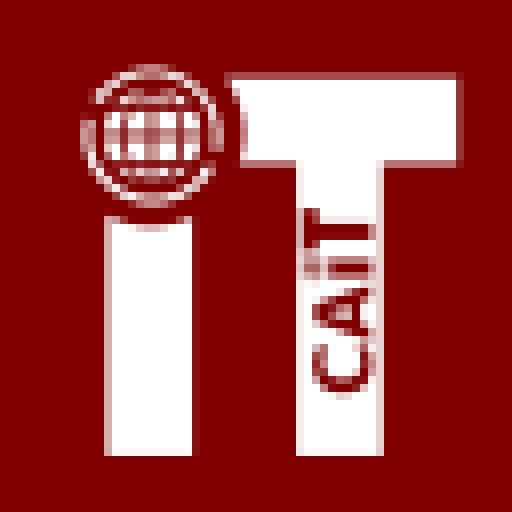From the beginning to the present
The history of the Systems Analysis and Information-Analytical Technologies Department began in 1982 when the official order was issued by the Kharkiv Polytechnic Institute on the organization of the Technical Cybernetics Department. However, really the beginning of its origin should be considered 1964. This year, KhPI began training research engineers in the area of “Flight dynamics and control” in the Automatic traffic control department, which was founded by Dr. Prof. Dabagyan A.V. The new specialty was focused on training specialists in automatic control for the rocket and space industry, which developed rapidly in the 1960s.
The high demands on the quality of controlled processes in such science-intensive objects as ballistic missiles and spacecraft have necessitated a fundamentally new approach to training for the rocket and space industry.
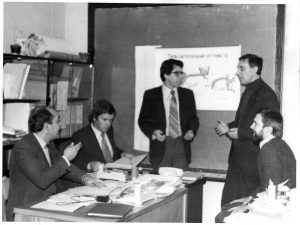
The curriculum of the new specialty, developed by the founders of the Department of Automatic Traffic Control, A.V. Dabagyan and V.G. Sergeev, the general designer of KB “Elektropryladobuduvannya, included a fundamental mathematical foundation that consisted of a set of disciplines essential for addressing a wide range of problems related to the analysis and synthesis of complex control systems, as well as mathematical modeling of processes in controlled objects, not limited to aerospace applications. The second component of the curriculum consisted of disciplines focused on the use of digital and analog computers for tackling specific management problems. At that time, algorithmic languages were just emerging in the field of practical application, but the basic programming algorithms and methods for solving mathematical problems have remained relevant to this day. As a result, the amount of computer training was relatively small. The third group of disciplines studied by students was the disciplines directly related to the theory and practice of automatic control, in particular, aerospace objects.
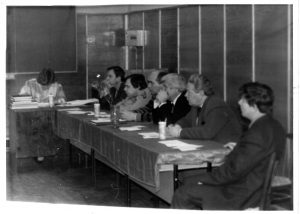
The 1970s and 1980s can be characterized by the widespread introduction of mathematical methods and information technology in the field of industrial production and management of technical and economic systems. In accordance with these circumstances, new departments were established within the Department of Automatic Traffic Control, one of which was named the Department of Technical Cybernetics and, later, the Department of Systems Analysis and Management. The initiator and first head of the Department of Systems Analysis and Management was the Rector of the University Yuri Trohimovich Kostenko.
After his death, from 1999 to 2020, the department was headed by a graduate of the Department of Automatic Traffic Control Oleksandr Serhiyovych Kutsenko, who, after completing his postgraduate studies at the same department in 1974, worked for more than 20 years at the Institute of Mechanical Engineering Problems of the National Academy of Sciences of Ukraine, where he defended his doctoral dissertation in the field of mathematical and computer modeling of energy conversion processes in transport power plants. In 2020, Doctor of Technical Sciences, Professor Yury Ivanovych Dorofeev, became the head of the Department of System Analysis and Information and Analytical Technologies. Yuri Ivanovich Dorofeev graduated from the Kharkiv Polytechnic Institute in 1989 with a major in “Robotic Systems and Complexes”. In 1995, he defended his candidate’s thesis on the specialty “Automation of technological processes”. In 2015, he defended his doctoral dissertation in the specialty “Automation of control processes”. Since 2016, he has served as a professor at the Department of System Analysis and Information and Analytical Technologies.
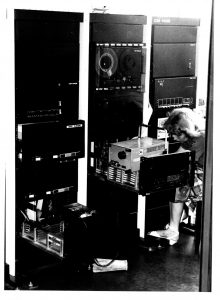
The main educational concept of the new department was based on shifting away from the narrow professional training of specialists in one specific field of knowledge. The educational programs and plans of the department were focused on the broad integration of scientific fields aimed at the creation of various science-intensive devices, instruments, and technologies. The basis of such integral training was primarily applied mathematical methods, including linear algebra, the theory of differential equations, probability theory, discrete mathematics, numerical methods, and other disciplines. The second component of the department’s educational program was computer training, which included the study of such disciplines as programming, computer architecture, operating systems, databases, network information technologies, etc. Robotics was chosen as the subject area for the training of specialists. It combined most of the fundamental scientific directions and perfectly fit into the main educational concept of the department.
The main scientific focus of the department was the application of mathematical models of computer technology in the automation of technological process management and scientific research.
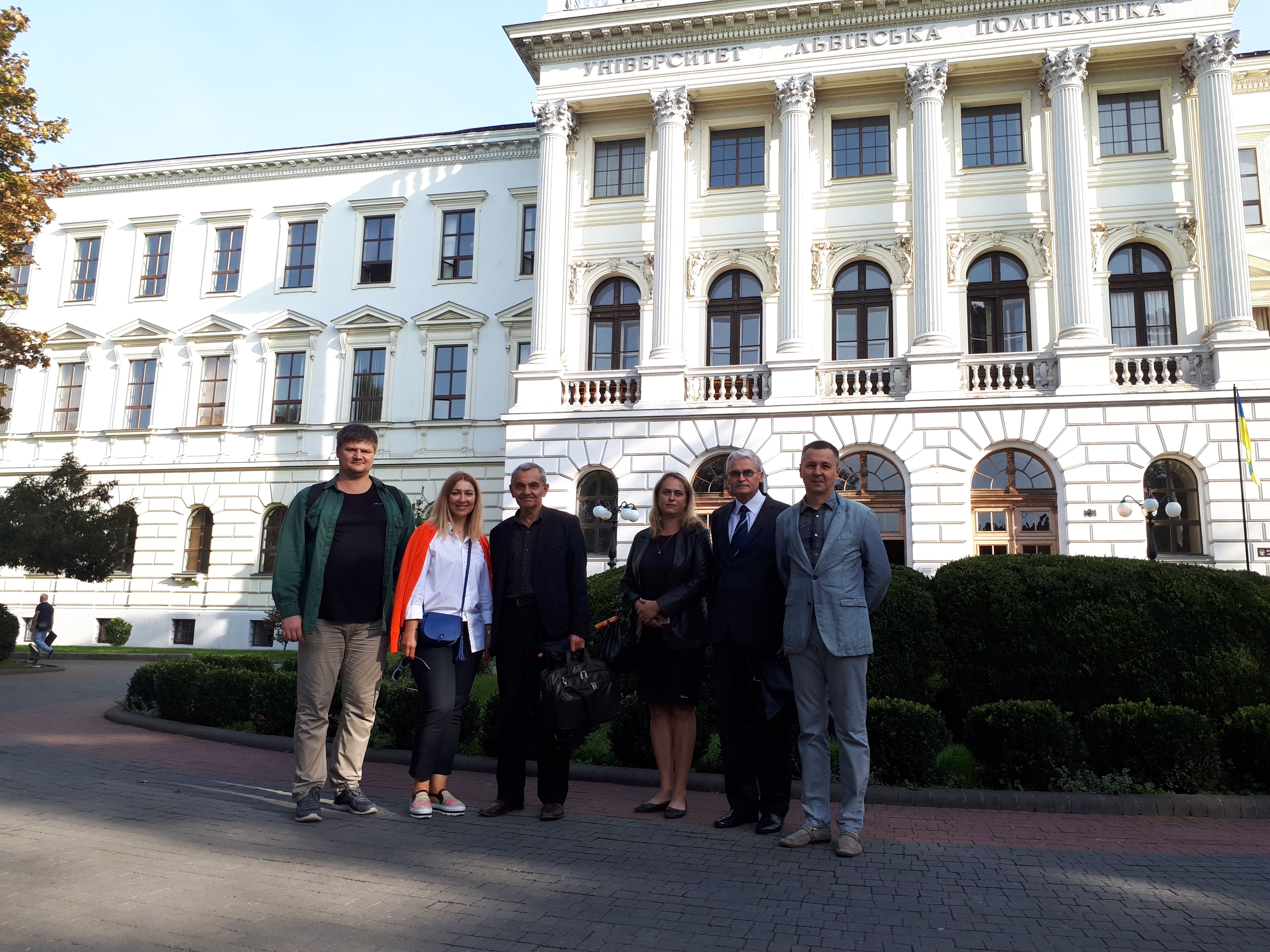
The accumulated experience in the field of computerization of experimental research allowed the department’s staff to participate in a long-term cycle of work in the field of automation of research and testing of aviation equipment products, which was initiated by Yu.T. Kostenko and was conducted under his leadership and with his direct participation. In cooperation with the specialists of the Soyuz Turaevsky Machine-Building Design Bureau, the Moscow Aviation Institute, the Institute of Applied Electrodynamics, the research group of the department developed fundamentally new methods of non-contact optical diagnostics of high-temperature gas flows and combustion processes in multiphase environments, and started priority research in the field of industrial computer tomography . These studies formed the basis of a number of contractual research projects focused on key topics, carried out by the government authorities of the USSR. The obtained results, including automation techniques and software, were implemented at a number of enterprises of the Ministry of Aviation Industry of the USSR, were used in tests of jet and gas turbine engines, and provided a significant economic effect. In parallel, significant works on the automation of bench tests on the thermal strength of elements and assemblies of gas turbine engines were commissioned by the production association ZPO “Motorobudivnyk” (now “MotorSICH”).
The results obtained during these and subsequent years in the field of automation of design and testing of new equipment constituted a substantial part of the work awarded in 1997 with the State Prize of Ukraine in the field of science and technology.
Understanding of the scientific problems arising from practical tasks of automation presented the department’s scientific team with the need to solve a number of theoretical problems in automatic control. These efforts were crowned with a number of significant successes. A group of scientists, headed by Leonid Mykhailovych Lyubchyk, achieved new scientific results on fundamental issues of control theory – control of systems with distributed parameters, theory of invariance, theory of robust control of multidimensional systems, methods of solving inverse dynamics problems. The results were repeatedly presented at the most prestigious international conferences in the USA, Japan, Italy, and other countries.
The department’s successes have been noticed and properly evaluated in Ukraine. The department established fruitful contacts with the National Committee of Ukraine on Automatic Management, whose members were A.S. Kutsenko and L.M. Lyubchyk. It was no coincidence that KhPI was chosen as the venue for both scientific and technical conferences on automatic control, the brilliant organization and high scientific level of which were unanimously praised by all participants.
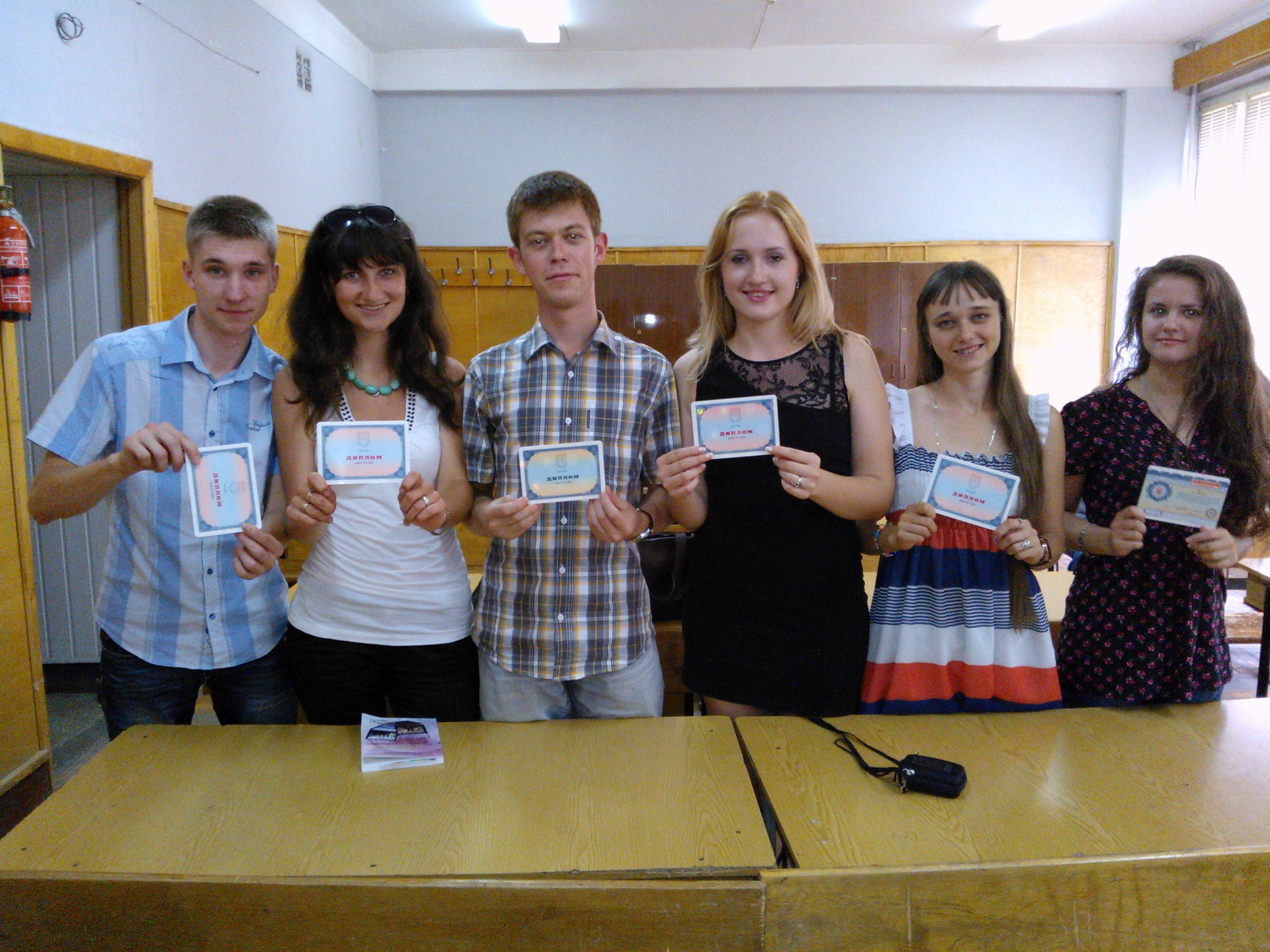
The organization of the department became a landmark event not only on the scale of KhPI. Thanks to continuous efforts, talented teachers and scientists from our university and other universities and research institutes were attracted to the department for the development of a new direction. Within a short period, a strong laboratory base was established, a number of orders from various enterprises were fulfilled, and the department was equipped with computing equipment.
The department can be considered a cradle of doctors and candidates of the sciences. Thus, while working at the department, Y.T. Kostenko successfully defended his doctoral thesis. V.Ya. Zaruba, A.S. Mazmanishvili, L.M. Lyubchyk, V.P. Severyn, L.G. Raskin, T.B. Nikitina, as well as doctoral graduates G.K. Voronovsky, A.A. Gorelik, A. Galuza, O. Nikonov, and O. Sira, graduates of the department, also became doctors of science. More than 30 graduates of the department defended their candidate theses, both within the walls of KhPI and in other specialized councils.
A number of the department’s employees became heads of other departments of KhPI and other universities. So V.Ya. Zaruba – Dean of the Faculty of Economic Informatics and Management, L.G. Raskin – head of the Department of computer monitoring and logistics, L.M. Lyubchyk – Head of the Department of Computer Mathematics and Mathematical Modeling, T.B. Nikitina is the head of the Department of Natural Sciences and Humanities of the Kharkiv National Road University.
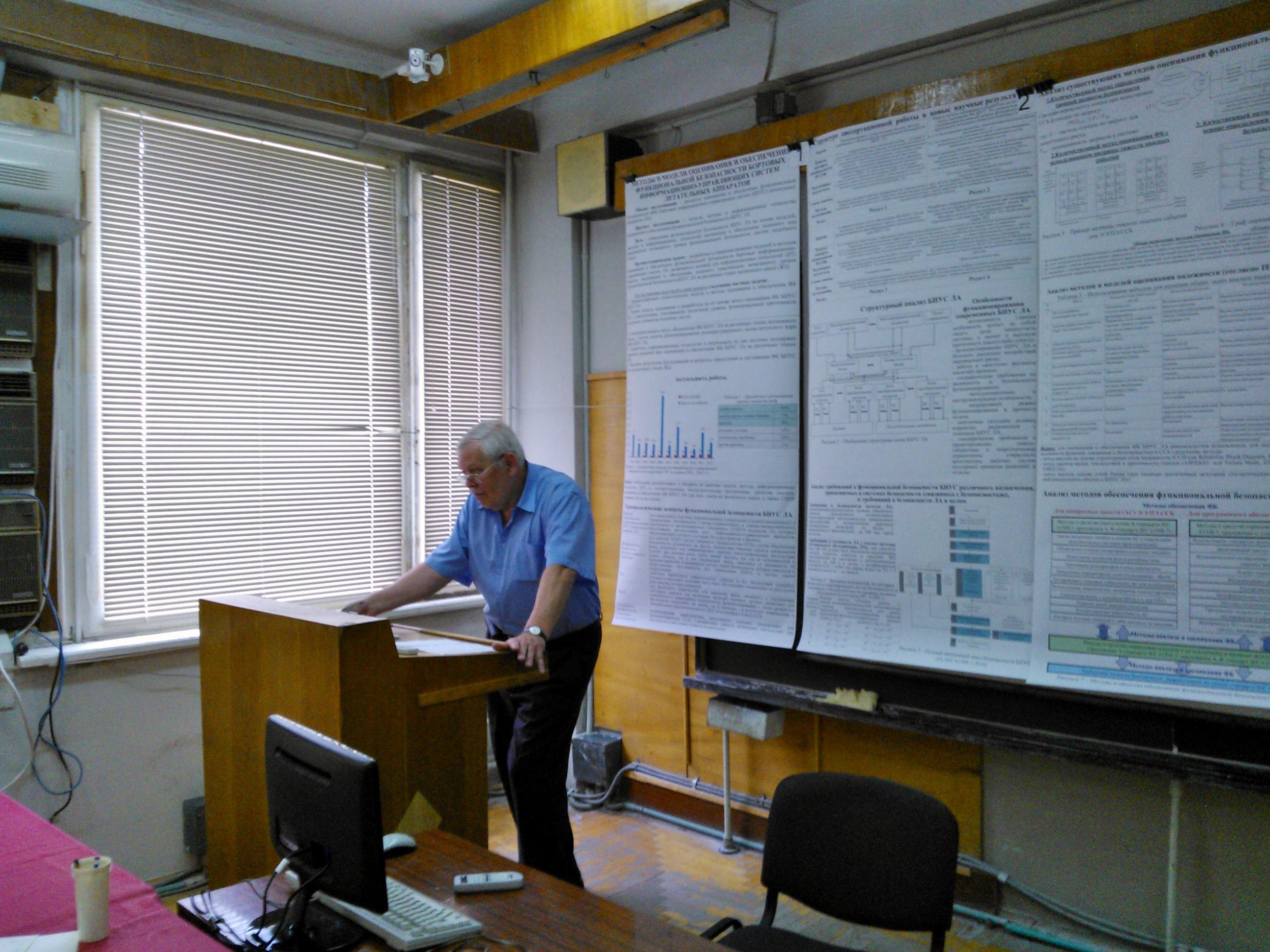
The department serves as the base for the specialized academic council D 050.60.07 on dissertation defenses in the following specialties:
- 05.13.06 – Information technologies;
- 05.13.07 – Automation of managed processes.
The scientific activity of the department, as before, will be focused on research and development of modern management systems for complex processes occurring in technical, economic, and social systems. At the same time, the main emphasis will be on addressing issues related to improving the quality of electricity generation at thermal power plants and nuclear power plants, as well as the efficiency of building heat supply systems based on fundamentally new approaches to mathematical modeling and synthesis of control systems.
